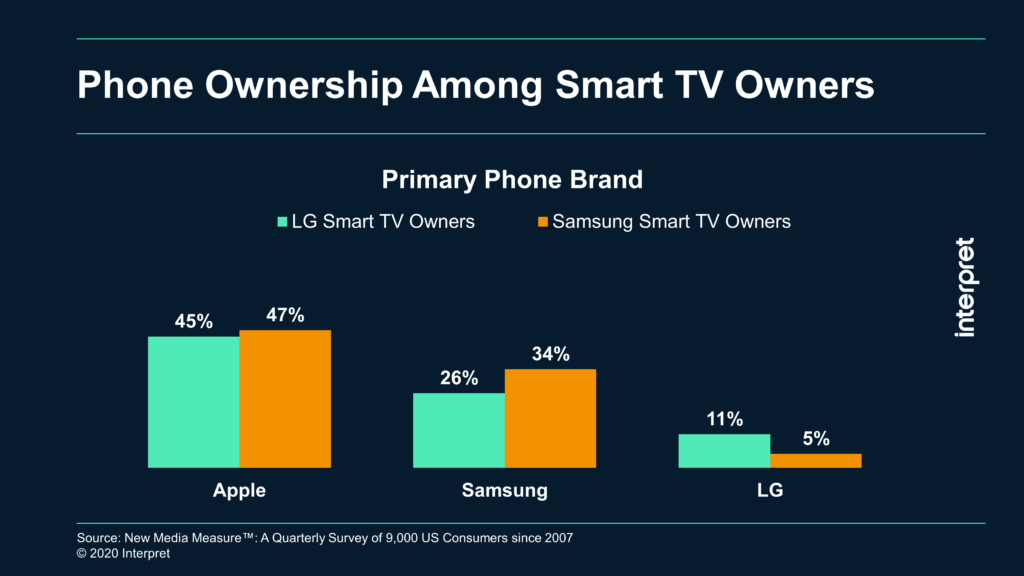Videophiles this holiday season are likely to flock to one of LG Electronics’ newer OLED smart TVs – the LG CX is frequently cited as a solid model to support the new next-gen consoles, PS5 and Xbox Series X – but those same consumers are not very likely to purchase an LG smartphone. This is a missed opportunity for a consumer electronics firm that’s generally praised for its quality across devices but has yet to extend that level of brand loyalty to its mobile products.
South Korean competitor Samsung, conversely, has demonstrated an ability to leverage its strong brand reputation in multiple verticals. According to Interpret’s New Media Measure®, 34% of Samsung smart TV owners currently own a Samsung phone compared to just 11% of LG smart TV owners who have purchased an LG smartphone. Given LG’s current TV fanship, the company has a chance to incent some of its audience to pick up one of its phones and begin chipping away at Samsung’s dominant share of the Android market.
LG’s ThinQ line of smartphones generally receives favorable reviews, but the company has been looking for ways to differentiate itself in a market saturated with “sameness.” The most recent example is LG’s unique LG Wing model that features a rotating swivel-screen, something that no other phone manufacturer is offering. But that’s not always a great thing, as The Verge notes: “While the hardware is excellent, the Wing reveals that as cool of a concept as the rotating and secondary displays are, there are just not enough practical use cases to justify them.”
What LG is cooking up next, however, might just have more appeal. The company is looking to skip over the foldable phone trend with a special, rollable design. LG has been awarded a patent for its technology that enables the phone to extend in both horizontal directions, effectively doubling its screen size. This “Project B” smartphone is expected to launch some time in 2021, and unlike the LG Wing, its entertainment appeal is far more obvious.




